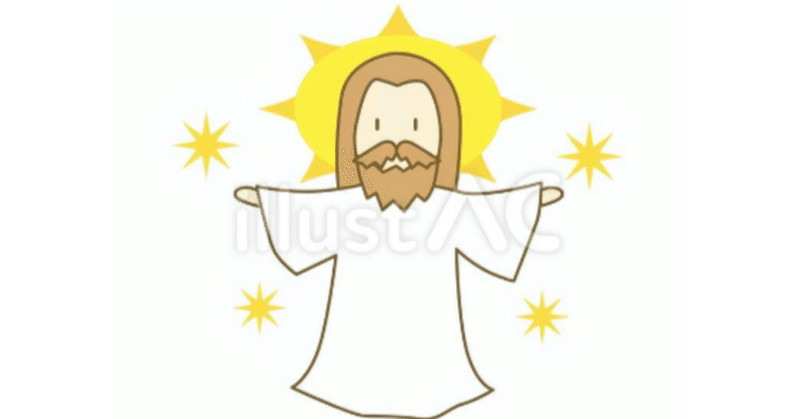
★直訳聖書012「創世記」8
The Flood Subsides
洪水おさまる
GENESIS 8
But God remembered Noah and all the beasts and all the livestock that were with him in the ark. And God made a wind blow over the earth, and the waters subsided. The fountains of the deep and the windows of the heavens were closed, the rain from the heavens was restrained, and the waters receded from the earth continually. At the end of 150 days the waters had abated, and in the seventh month, on the seventeenth day of the month, the ark came to rest on the mountains of Ararat. And the waters continued to abate until the tenth month; in the tenth month, on the first day of the month, the tops of the mountains were seen.
しかし神は、ノアと、共に船にあった獣と家畜を忘れなかった。地上に風を吹かせ、水は弱まった。深淵の泉と天の窓は閉じ、天からの雨は弱まり、水はどんどん地上から引いた。150日の終わりには、水は弱まり、7か月後の17日目に、船はアララト山にたどり着いた。水は10か月弱まり続け、その日に、山頂が水面の上に見えた
(コメント)
なるほど、例のどこから沸いたか分からなかった水watersは
第1章でもここ第8章でも、深淵the deepから沸き出すっぽいことが分かった
the deepを訳すと、深淵、深み、奈落の何か、という感じだが、
地上にある海や川の洪水などが、空から(つまり天の窓から)だけでなく
地面の深みからfountain湧き出てくるという発想だったようだとここで分かった
たしかに豪雨だと、降ってくる以上に地面から沸いてる感覚は分からんでない
世界の終わりに見えただろうし、神の怒りに見えただろう
ちなみにアララト山はメソポタミアの北、現在のトルコにある
At the end of forty days Noah opened the window of the ark that he had made and sent forth a raven. It went to and fro until the waters were dried up from the earth. Then he sent forth a dove from him, to see if the waters had subsided from the face of the ground. But the dove found no place to set her foot, and she returned to him to the ark, for the waters were still on the face of the whole earth. So he put out his hand and took her and brought her into the ark with him. He waited another seven days, and again he sent forth the dove out of the ark. And the dove came back to him in the evening, and behold, in her mouth was a freshly plucked olive leaf. So Noah knew that the waters had subsided from the earth. Then he waited another seven days and sent forth the dove, and she did not return to him anymore.
40日後に、ノアは船の窓を開け、カラスを放ったが、水が引くまでうろうろした(だけだった)。そこでハトを放ち、地上から水が引いたか確かめようとしたが、まだ水が覆っていて降りる陸地が見つからずハトは船に戻ってきたため、中に入れた。7日後、再びハトを放ったら、夕方戻ってきたハトの口には、摘んだばかりのオリーブの葉があったので、水が引いているのが分かった。ノアはもう7日待ってハトを放ったところ、もはや戻って来なかった
(コメント)
たまたま最近たしかNHKで見たドキュメンタリーで
カラスは古代では世界のいろんなところで神の使い的な動物で
たしかエジプトとか日本の八咫烏とか
しかしキリスト教に塗り替えられていく過程で
土着のカラス信仰が否定されて、カラスは悪者で
ハトが善良というイメージに変えられた、みたいな内容があって
ありそうだなと思った
ローマ帝国にキリスト教が広まる過程で
クリスマスやハロウィンなんかも土着信仰を排除したり取り込んだりした
という中から生まれていたはず
あまり正確に番組の内容を覚えてないけど
聖書以前の土着の神話(シュメールかな)では
カラスが枝を折って戻ってきた、みたいなだった気がする
たんなる閑話休題です
(コメント)
これも今さらですが、上の黒丸みたいなのは
英語スタンダード版聖書での、段落(改行)を表しています
ハイフンをコピペするとなぜか黒丸みたいになってますが
そういうことです
ちなみに章番号以外に、いわゆる節番号もありますが
読みづらいので省略しました
In the six hundred and first year, in the first month, the first day of the month, the waters were dried from off the earth. And Noah removed the covering of the ark and looked, and behold, the face of the ground was dry. In the second month, on the twenty-seventh day of the month, the earth had dried out. Then God said to Noah, “Go out from the ark, you and your wife, and your sons and your sons’ wives with you. Bring out with you every living thing that is with you of all flesh— birds and animals and every creeping thing that creeps on the earth— that they may swarm on the earth, and be fruitful and multiply on the earth.” So Noah went out, and his sons and his wife and his sons’ wives with him. Every beast, every creeping thing, and every bird, everything that moves on the earth, went out by families from the ark.
601年後の初月初日、水は引いた。ノアが船のカバーを取り去って見たら、陸が乾いていた。翌月の27日、完全に乾いた。神はノアに言った「船から出られよ、お前と妻と息子たちとその妻たち、それと連れてきたすべての生き物、鳥と動物と這うもの、地に増えよ満ちよ」。ノアたちは外に出て、また動物たちも出た
(コメント)
ここまで何か月後とか何日後とか
それだけでもかなり細かく混乱する数字だが
ちょいちょい7に引っ掛けてるくらいで
特段、厳密な意味はなさそうだが
急な601年は、新共同訳によるとノアの601才のときと解釈しているようだ
ここではあくまで直訳した
あと、やはりそれほど重要ではないが
以前にも触れた、動物の区分は
鳥と這うものという2区分の他、動物として3区分目にまとめる場合と
動物を、獣と家畜にさらに2区分に分ける場合とあるね
つまり3区分のときと、4区分のときと、バラバラみたい
ちなみに、這うものとは、文脈から
いわゆる哺乳類(家畜=牛とか羊、獣=ライオンやオオカミ的な)以外の
蛇やサソリみたいなことかと思う(前にも書いたっけ?
God’s Covenant with Noah
神とノアの契約
Then Noah built an altar to the LORD and took some of every clean animal and some of every clean bird and offered burnt offerings on the altar. And when the LORD smelled the pleasing aroma, the LORD said in his heart, “I will never again curse the ground because of man, for the intention of man’s heart is evil from his youth. Neither will I ever again strike down every living creature as I have done. While the earth remains, seedtime and harvest, cold and heat, summer and winter, day and night, shall not cease.”
ノアは祭壇を作り、穢れていない動物と鳥を焼いて捧げた。良い香りがし、神は心の中で言った「もう人間のせいで大地を呪うことはないであろう、人間の心は若いころから邪悪だから。今回みたいに打ちのめしたりもしないし、大地が続く限り、種をまき収穫し、寒さ暑さ、夏と冬、昼と夜が絶えることはない」
(コメント)
やはり神は捧げものを重視するらしい
人類史上まるっきりメソポタミアと関係ないとされる古代マヤでも
捧げものは、いけにえを含めて盛大に行われたし
なぜかそういう感覚が人間にはあるのだろう
穢れていない、というのは、たぶん死肉ではなくて
アベルが生まれたばかりの家畜を捧げたように
新鮮な最初の収穫物を屠って、ということだろう
たぶん、大地の実りは、家畜であれ作物であれ
神によって大地から与えられたものだから
その一部を神に返すのは感謝の意味で当然で
大地から生まれた人間もまた同様で
新鮮な人間を家畜と同様に屠ってささげたのが
いわゆるいけにえなんだろうきっと
だからたいてい老人ではなく若者や子供が多いのだろうたぶん
古代人の感覚としては当たり前なんだろうと少し分かった気がする
それよりも、神の言っていることが少しよく分からない
人間のせいで大地を呪うことはもうしないという宣言があるが
うっすらした記憶では
このあとも神は何度も人間に大災害をもたらすはず
地を呪ったのは今回だけというにすぎないのか
しかもその理由が、人間はどうせ邪悪だからって
それってつまりもう邪悪については諦めたという意味なのか
その割に今後もまた滅ぼす的な懲罰を加えるんじゃなかったっけ…
少なくとも、大地は季節のめぐりで実りを保証された
あるいは大地の実りが復活した、ということを言っているだけかもしれない
次回第9章
.
この記事が気に入ったらサポートをしてみませんか?
